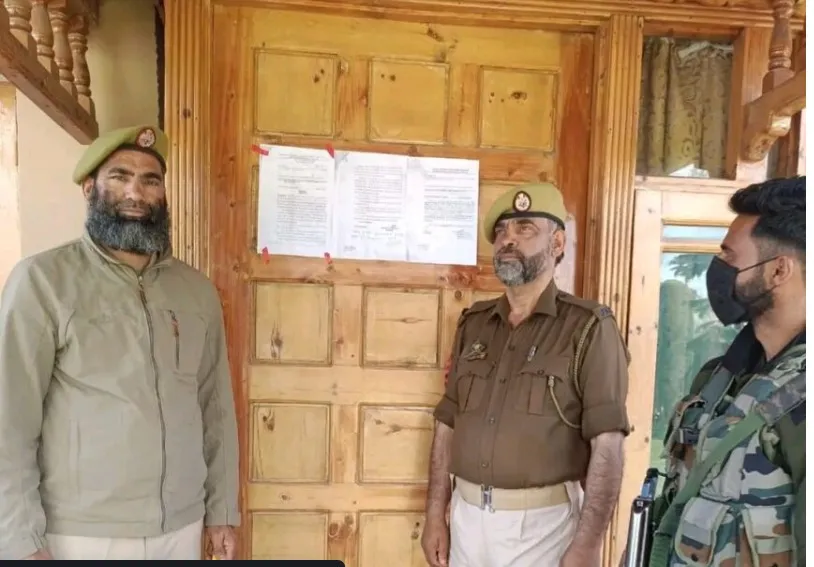Intensifying the brutal policy of confiscating properties of Kashmiris on one pretext or another, the Modi regime has declared eight people as proclaimed offenders in Baramulla district, occupied Jammu and Kashmir.
According to Kashmir Media Service, these people have been asked to appear before the court within one month, failing which their properties will face attachment. Additionally, authorities have seized properties belonging to three men including Muhammad Lateef, Sadar Din, and Aziz Din in the Uri area of Baramulla district.
Indian police spokesperson announced that Additional Sessions Judge Baramulla had declared Mohammad Maqbool Pandith, Hilal Ahmad Ganie, Mudasir Shafi Geelani, Habibullah Sheikh, Shabir Ahmad Najar, Mohammad Ashraf Dar, Ghulam Nabi Najar, and Fayaz Ahmad Mir as proclaimed offenders upon application by Baramulla Police.
The spokesperson further explained that search warrants were obtained from the court for the arrest of these individuals, who are currently. Proclamation orders have been issued by the Court of Sub Judge Pattan against them, and notices have been posted at their residences and public places. They are required to present themselves before the court within one month, failing which their properties will be subject to attachment.
Meanwhile, Indian police have seized properties comprising 30 kanal and 15 marla of land, valued at crores of rupees, belonging to Muhammad Lateef, Sadar Din, and Aziz Din in Uri area of Baramulla district. The individuals have also been declared proclaimed offenders by the authorities.
This is not an isolated incident. In recent years, there have been numerous cases of Kashmiri homes and businesses being demolished or confiscated by the Indian authorities. Human rights groups have condemned these actions as a violation of international law.
Critics say that the government is using these measures to suppress dissent and punish Kashmiris who are critical of Indian rule. The latest property seizures in Baramulla district are likely to further anger and alienate the Kashmiri people. They are also likely to make it more difficult for Kashmiris to seek justice for human rights abuses, as they may be afraid of losing their property if they speak out.—KMS










